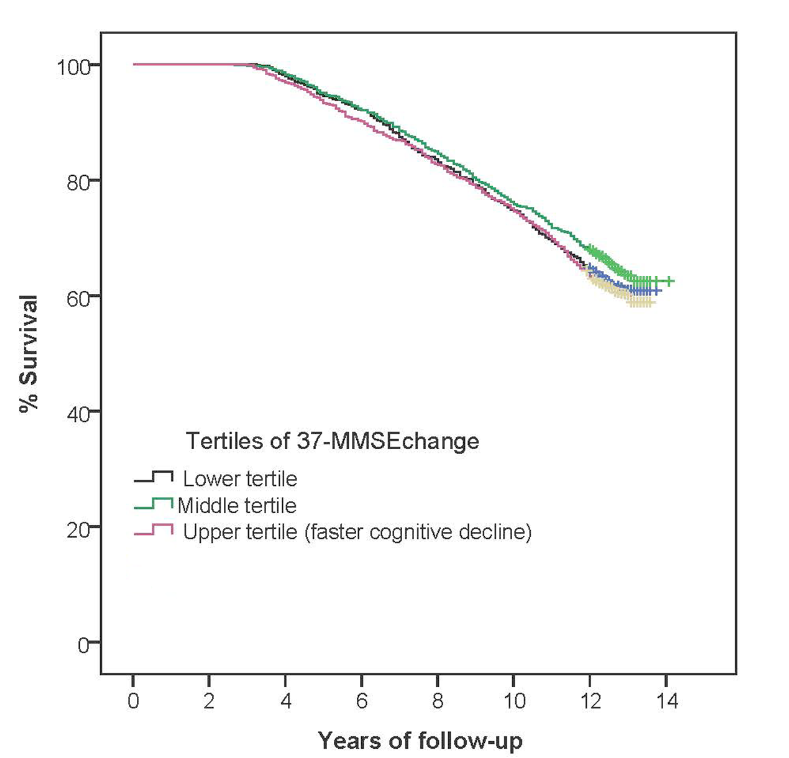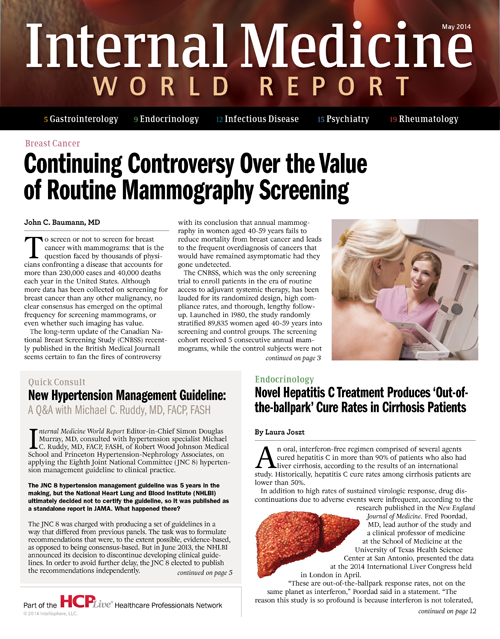Inverse Link Between Cognitive Decline, Cancer in Elderly Patients without Dementia
A population-based, prospective study found faster cognitive decline was associated with a decreased risk of cancer mortality in elderly patients without dementia.

A population-based, prospective study published in Neurology on April 22, 2014, found faster cognitive decline was associated with a decreased risk of cancer mortality in elderly patients without dementia.
Led by Julian Benito-Leon, MD, PhD, a team of Spanish and American researchers studied 2,627 people aged 65 years and older who did not have dementia at baseline. During the NEDICES Study, patients were given a 37-item version of the Mini-Mental State Examination (37-MMSE) at 2 visits conducted at baseline and follow-up approximately 3 years later. Change in 37-MMSE was divided into tertiles, with the lower tertile demonstrating a ≥2-point improvement in score and the higher tertile recording a ≥2-point decline in score.
The community-dwelling elders were followed for a median of 12.9 years, “after which the death certificates of those who died were examined,” the researchers said. According to the authors, a total of 1,003 (38.2%) study participants died, including 339 (33.8%) deaths among those who were in the higher tertile of change in 37-MMSE scores and 664 (66.2%) deaths among those in the remaining tertiles. The researchers reported that cancer occurred significantly less often among elderly participants in the higher tertiles of 37-MMSE score change (20.6%) than in the remaining tertiles (28.6%).

The investigators concluded that faster cognitive decline was associated with a decreased risk of cancer mortality in community-dwelling elders who did not experience loss of brain function. However, the authors relented that more research is needed to clarify why this inverse association exists.
